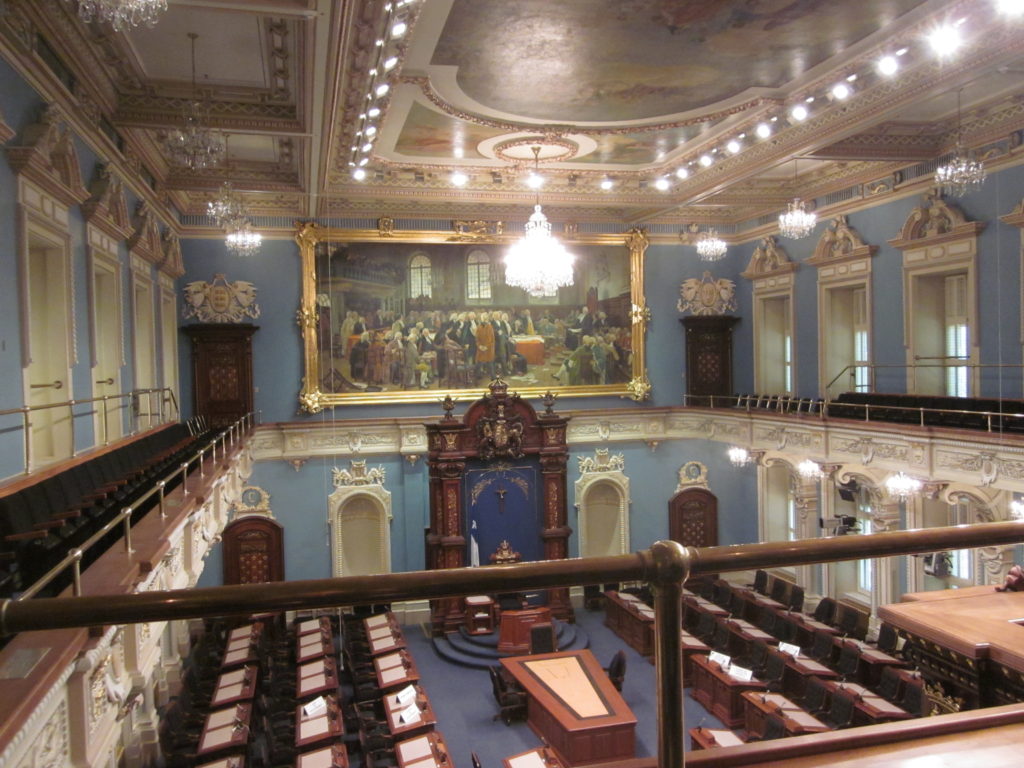I am often reminded that the prejudice I encounter in archival or other primary source research—the xenophobia and bigotry with which my historical subjects contended—is also the prejudice that members of minority groups currently face in their daily lives.
While at Brock University, I studied marginalization and discrimination in postwar Canada and in Canadian immigration policy. In my time in New Hampshire, I have also researched John F. Kennedy’s mighty struggle against religious prejudice and the barriers facing French-Canadian (im)migrants on U.S. soil. I have taught my students about yet more dramatic and tragic instances of prejudice in my courses on American and world history.
I am always reluctant to bring the past into discussions about present-day issues—that is, to apply remedies from another era to our own. For one thing, it is remarkably easy to draw from an immense pool of “facts” explanations that fit with one’s existing worldview—and for that reason, no matter the ideological bent, I am wary of historical arguments on political questions.
Other immigration historians in the United States have been vocal critics of recent shifts in policy regarding the southwestern border and the legally dubious travel ban signed in January 2017. I have seen a number of scholars of Franco-American history express opposition to xenophobic rhetoric and establish parallels in the treatments of French Canadians and Hispanic and Muslim immigrants. Some political figures have followed in their wake.
If the parallels are imperfect, it remains obvious that these scholars’ archival findings or oral interviews have piqued their consciences. Their research and a sense of moral commitment have carried into their civic responsibilities. They have vocalized their pursuit of a more just society.
Thus, if historical education is not a perfect guide to action, it does help us understand ourselves and help us understand others—if we only try and if, open to new ideas, we make a genuine effort in that direction. Through history we can become more empathetic. I do not mean that we must be so tolerant as to be morally vacuous, but that we should understand cultures to sharpen our appreciation of and commitment to human dignity.
This is an inordinately long preface to a comment on what I have witnessed on social media in the last two months—not from Americans, but from Quebeckers. This is all in the context of a bill proposed by the government of Quebec that would regulate religious expression among public service employees. There is ample room for respectful debate in this area. Yet the bill has emboldened some people who deny the agency of individuals of certain faiths and who seize on a few, dramatic events to characterize an entire faith as evil.

If social media is a poor gauge of public opinion, it also enables people to voice sincere views that they would not in other contexts. There they find a community to support those views. Without going to the same rhetorical extremes, columnists for some conventional media outlets in Quebec have encouraged intolerance. I worry that as they abdicate their duty to healthy public discourse, they have opened a Pandora’s box that will provoke marginalization and violence before those ardors can be cooled.
Historians have public responsibilities as citizens. But the terrible cocktail of ignorance, fear, and contempt suggests that historians might also have public responsibilities as historians—engaging the wider public to ease cross-cultural dialogue and to dispel myths. I hope to see more of that in months ahead.
Announcements
The blog will be silent for some time as I enter end-of-term grading and then embark on a highly anticipated (and hopefully well-deserved) break with my better half.
I hope occasional and regular readers alike will continue to explore the materials on this blog. As of the beginning of this month, the posts below were the most viewed. They might provide some inspiration.
- Why Franco-American History?
- Resources: Monographs and Surveys of Franco-American History
- Quebec and Hinterland Canadians
- A Confederate in Canada
- Canadians in the Mexican-American War
Do not hesitate to reach out with comments, suggestions, questions—and, sure, grievances.
At last, I had the pleasure of chatting with Jesse Martineau of the French-Canadian Legacy Podcast recently; the interview appeared several days ago and you can check it out here.
Leave a Reply